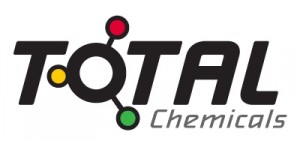Balli Steel, one of the world’s largest privately owned independent commodity traders, highlights that steel markets across the globe have experienced sharp price rises since mid- February 2010. The first six weeks of the year had seen a flat market with the majority of commentators believing that prices would most likely fall back to November 2009 levels, however conversely, prices started to rise sharply coinciding with Chinese New Year (14th February).
Balli Steel reports that the price has largely been driven upwards by restrictions in the availability of raw materials and by steel mills maintaining a tighter control over supply. Balli Steel anticipates that prices are likely to continue to rise in the short term, however, there is the possibility that the market may start to show signs of fatigue in the third quarter, especially if the steel mills fail to retain supply restrictions.
Balli Steel reports that prices have risen by approximately US $200 per tonne since the start of the year regardless of their base level, equating to increases of approximately 35-40%.
Nasser Alaghband, CEO of Balli Steel commented: “Contrary to the views of most commentators at the beginning of the year, we have seen a strong rally in steel prices over the past six weeks, albeit based on relatively thin trading volumes. We anticipate that prices are likely to grow more conservatively over the rest of the year, although prices may come under pressure in the third and fourth quarters if steel mills decide to increase production.”
Although steel prices have risen across the board, there remain significant regional market variations. The Chinese market remains key, accounting for significant global demand and over 50% of worldwide production, however despite surpluses, China has not been an aggressive exporter. Elsewhere in the Asian market, demand from India has also remained very strong with significant imports made in the first quarter of 2010.
Via EPR Network
More Industrial press releases








 “The partnership expands Bakner’s capabilities in fiber and yarn extrusion, spinning and blending,†said Jason Baker, Bakner’s cofounder. “We will enhance Bakner’s intellectual property by developing and patenting new high performance yarns.â€
“The partnership expands Bakner’s capabilities in fiber and yarn extrusion, spinning and blending,†said Jason Baker, Bakner’s cofounder. “We will enhance Bakner’s intellectual property by developing and patenting new high performance yarns.â€
